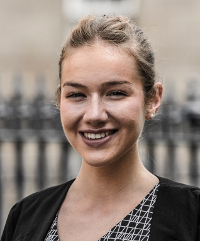Botox, dermal fillers, teeth whitening, hair-transplanting: the providers are regulated from this month, but are they regulated enough?
You may remember first becoming aware that places other than hospitals were offering “cosmetic” procedures: an advert for Botox in your local dental practice; hearing of someone’s image-altering treatment in an unfamiliar clinic; a friend displaying whitened teeth gained through treatment at a hairdressers?
 For years now, this practice has been underway. Indeed, in recent years the popularity of non-surgical cosmetic treatments such as Botox, fillers and teeth whitening has grown enormously, and other treatments – such as hair transplanting – have become more accessible.
For years now, this practice has been underway. Indeed, in recent years the popularity of non-surgical cosmetic treatments such as Botox, fillers and teeth whitening has grown enormously, and other treatments – such as hair transplanting – have become more accessible.
However, until very recently, there has been no organised regulation of providers who do not practice through hospitals. Given the sort of outcomes which can occur when cosmetics procedures “go wrong” (lips larger than intended at one end, serious health consequences at the other) that might be unexpected. With the materials even available online, surely regulation is needed to ensure providers carry out treatment only when properly prepared and qualified to do so, using only authorised products, and only in sufficiently safe, hygienic environments?
At the start of the month, the position changed: independent cosmetic “clinics” offering such treatments must, from 1st April 2017, be registered with Healthcare Improvement Scotland (HIS). Any clinic which fails to register will be open to criminal prosecution. Registered clinics will be subject to regular inspections: graded on quality of care, environment, staffing, management and information, and the results of these inspections will be publicly available. HIS act as watchdog and hold enforcement powers (imposing conditions on the clinic’s registration, serving an “improvement notice” calling for improvement and threatening cancellation of their registration if they do not do so) for clinics deemed to be inadequate.
Crucially, however, as things stand, the above only applies to clinics staffed by doctors, dentists and nurses, and does not cover services offered by non-medically qualified therapists, or the likes of hairdressing salons offering cosmetic treatments on the side.
The idea is that these other providers will be “phased in” to the regulation, but in the meantime the situation is unsatisfactory, not least because clinics staffed by healthcare professionals may raise prices to ensure their services cannot be criticised on inspection. If that leads consumers to seek cheaper treatment elsewhere, they open themselves up to treatment from unqualified providers not required to meet the same consumer-protection standards. That this is unsatisfactory is emphasised by the fact healthcare professionals are already subject to safety checks via their professional bodies, which other providers have never been exposed to. Arguably, we are only “regulating the regulated”, in relation to substantially medical treatments on offer to potentially vulnerable customers. Criticism has also been levelled at the HIS focus on “clinics”, rather than their practitioners, but it would be hoped that HIS’ focus when inspecting a clinic will include its practitioners.
Anyone considering this sort of cosmetic treatment would be well-advised to check whether their intended clinic is registered, and avoid having the same treatment through a salon not yet subject to HIS’s consumer-protection regime, at least until equivalent standards are applied across the board.
For further information on beauty treatment claims click here.


